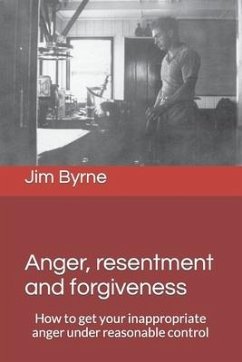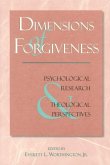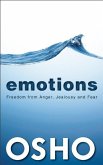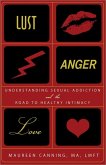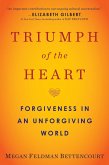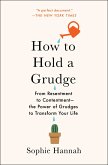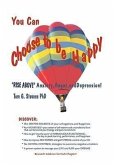The E-CENT theory of anger says that anger is one of our basic emotions. It's innate. It was selected by nature for its survival value. We would not survive for long without an innate sense of angering in response to abuse or neglect. We also would not survive for long if we did not quickly learn how to moderate our anger as young children. My anger (just like your anger) is a two-edged sword. It can help to protect me, and it can attract hostile reactions from others. My basic, innate emotion of anger is elaborated into a "socialized thinking-related emotion", through modelling and behaviour-shaping interactions with my mother and father, and significant others, in the first few years of my life. It is also shaped by my successful and my unsuccessful experiences of engaging in conflict with others. I may become an exploder, who erupts in the faces of others. I may become an imploder, who keeps his anger inside. Or I may hide my anger from myself (repress it) and then "mentally project it" into my social environment where it may frighten me. (I think my anger is directed at me from others around me!) So anger is a socialized emotion, and if you grew up with angry people, you are likely to be prone to angering yourself when provoked; or you might feel fearful of your own anger, or the anger of others. Healthy anger is present-time defence of your legitimate rights in the face of inappropriate behaviour by another person. Healthy or reasonable anger is the fuel that drives our assertive behaviours. It pushes us to engage in constructive conflict, when that is necessary! To ask for what you want, which is legitimately yours to request, requires a certain level of 'fire in your belly'. If you lack that fire (that reasonable level of anger), then you will tend to 'wimp-out'; to act passively and let other people control you, or intimidate you, or deny you your reasonable share of the social stage. Unhealthy or unreasonable anger, on the other hand, is an over-reaction to a frustrating or insulting stimulus from another person or external force. Unhealthy or unreasonable anger leads to aggressive actions and destructive conflict. - This book will teach you eight insights into your anger management problems... - Six ways to reframe your anger-inducing problem, so they become more manageable... - You will develop a comprehensive understanding of the nature of anger in yourself and others. - You will learn how to substitute "assertive communication" for destructive anger and aggression... - The art of forgiveness, based on two models that you can easily learn... - How to understand and improve your "conflict style"; and how to support that with a healthy lifestyle. >

